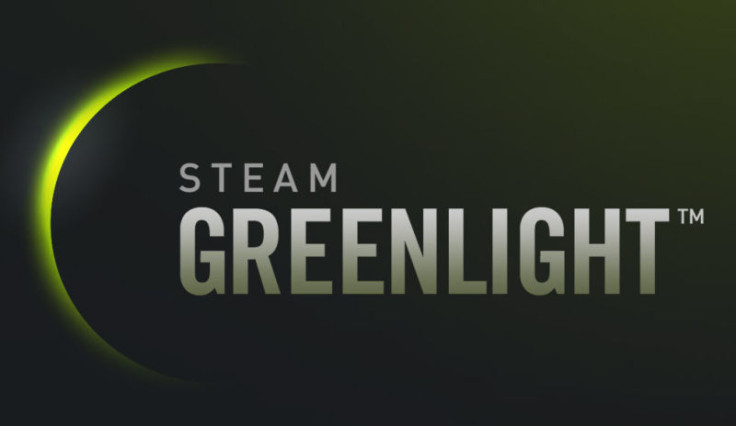Valve shutting down Steam Greenlight this spring to make way for new Steam Direct service
Valve said Greenlight was a 'useful stepping stone' towards moving to a more direct distribution system.

Valve is eliminating its Greenlight programme that allows users to vote on which smaller, indie games should be allowed on Steam in favour of a more streamlined system called Steam Direct.
Launched in 2012, Steam Greenlight will be shut down and replaced with the new system in the spring to "provide developers and publishers with a more direct publishing path and ultimately connect gamers with even more great content."
"After the launch of Steam Greenlight, we realized that it was a useful stepping stone for moving to a more direct distribution system, but it still left us short of that goal," Valve said in an announcement on Friday.
"Along the way, it helped us lower the barrier to publishing for many developers while delivering many great new games to Steam. There are now over Greenlight titles that have made at least $1 million each, and many of those would likely not have been published in the old, heavily curated Steam store."
However, Valve said the programme also highlighted two key problems that they needed to address which included "improving the entire pipeline for bringing new content to Steam" as well as "finding more ways to connect customers with the types of content they wanted."
To address these issues, Valve said a lot of work was done both behind the scenes and on the front end as well, such as the Discovery update and introduction of new features including user reviews, user tags, Steam Curators, discovery queues and streamlined refunds.
"These improvements have allowed more developers to publish their games and connect with relevant gamers on Steam," Valve said. "One of the clearest metrics is that the average time customers spend playing games on Steam has steadily increased since the first Discovery Update. Over the same time period, the average number of titles purchased on Steam by individual customers has doubled. Both of these data points suggest that we're achieving our goal of helping users find more games that they enjoy playing."
The Greenlight system also suffered from others issues including the massive number of games being submitted through the programme that made curation near-impossible, some developers attempting to game the system by offering rewards for votes and worthy titles getting lost in the shuffle.
The next step was to create a more direct sign-up system for developers to put their games up and release them on Steam. The new system will require developers to complete some paperwork in a process similar to "applying for a bank account" and pay a recoupable application fee for every game they wish to launch on the platform.
Under the current Greenlight system, developers pay a one-time $100 fee and can then submit as many projects as they wished.
The new publishing fee, intended to "decrease the noise in the submission pipeline," has yet to be decided.
"We talked to several developers and studios about an appropriate fee, and they gave us a range of responses from as low as $100 to as high as $5,000," Valve said. "There are pros and cons at either end of the spectrum, so we'd like to gather more feedback before settling on a number."
The new potentially expensive fee gate, however, has already drawn concerns and criticism from developers arguing that a steep fee would discourage from submitting new projects.
"Moving away from Greenlight and approving developers for direct access is absolutely a good thing, buuuut... " indie game developer and co-founder of Minor Key Games J. Kyle Pittman wrote in a series of tweets. "A per-title fee, even if recoupable, feels a little... not great.
"It gets into that gross territory of, 'If you can't afford X, you shouldn't even be making games,' which I loathe."
uhhh a $5000 fee per game would basically shut out students / small devs / experimental people from Steam forever? also pretty bad for VR? https://t.co/E6gJekNaQO
— Robert Yang (@radiatoryang) February 10, 2017
At the same time my experience with XBLIG says $5k per title is too much. Hopeful devs will bankrupt themselves w/ no profit.
— Daniel Steger (@StegerGames) February 10, 2017
I insist money & quality aren't related. Some poor devs make amazing games, and some rich studios only release horrible copy-paste jobs.
— Rami Ismail (@tha_rami) February 10, 2017
Steam Direct instead of Greenlight: the deposit to release a game is a simulation of physical inventory cost. https://t.co/V0h6JPptr7
— Shahid Kamal Ahmad (@shahidkamal) February 10, 2017
With Steam being opened up to Google Play levels, going to be even harder for indies to get noticed if they have no marketing commitment
— Ben Cousins (@BenjaminCousins) February 10, 2017
For better or worse, we could see an upsurge in shifty fellows offering to front your fee on dubious terms. Occupational hazard I guess. https://t.co/FtRt1SXvXe
— Lars Doucet (@larsiusprime) February 10, 2017
© Copyright IBTimes 2025. All rights reserved.





















